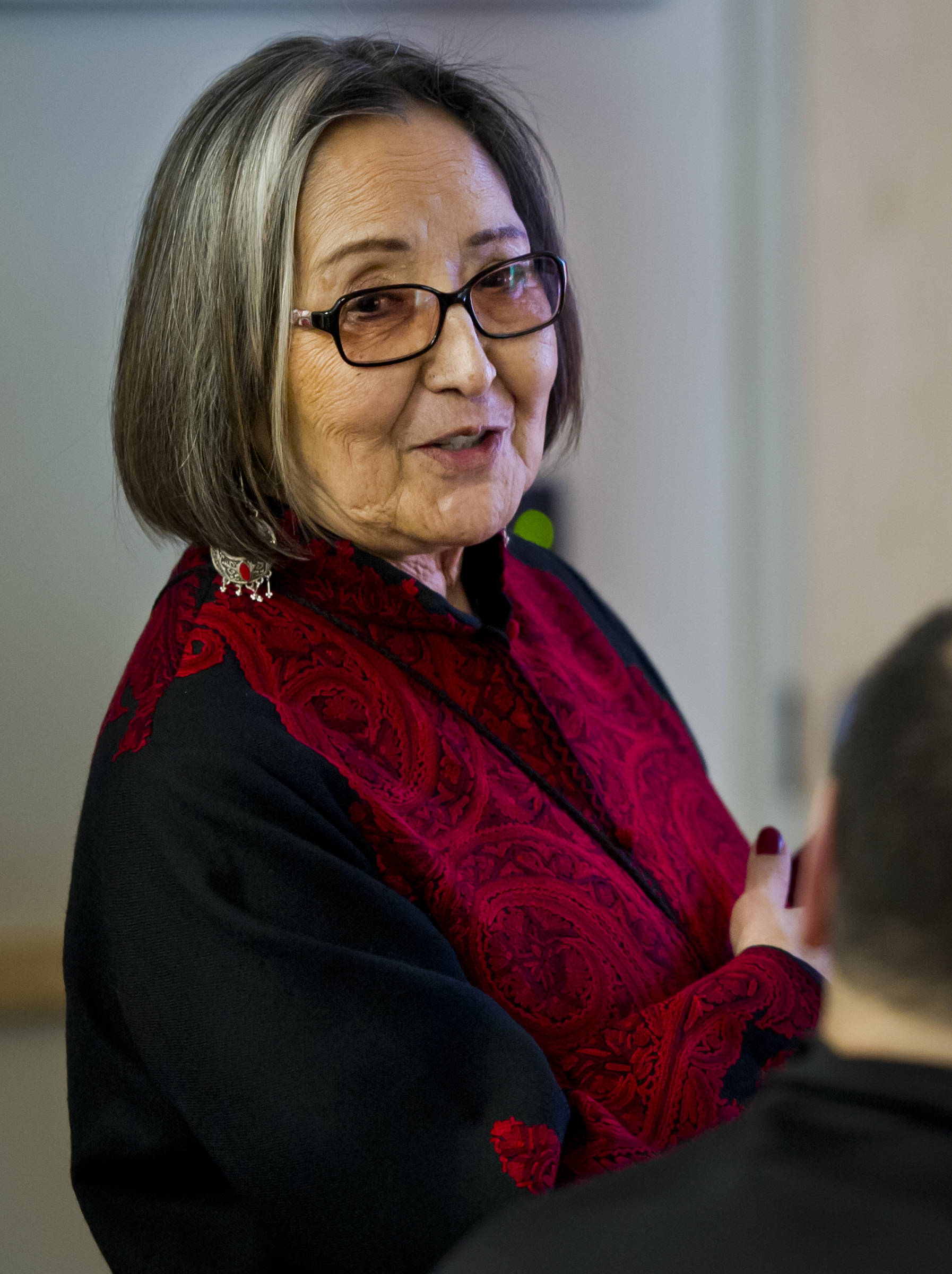Sealaska Heritage Institute on Thursday announced it will be hosting an Alaska Native language summit, geared toward fluent elders speakers of the Tlingit, Haida and Tsimshian languages.
There’s about 100 fluent remaining speakers of Lingít (Tlingit), Xaad Kíl (Haida) and Sm’algyax (Tsimshian), said a press release from SHI. The summit will be called “Voices of Our Ancestors.”
“When I was growing up, we heard (Alaska Native languages) all of the time,” Worl said. “I want our young children to have the benefit of hearing our people speak, laugh, joke in a Native language because most of them have been exposed to instructional Tlingit, Haida or Tsimshian and have not had the benefit of hearing a body of speakers. It’s for all that.”
The idea behind the summit is to have fluent Alaska Native elders converse with one another while allowing language students to observe the summit. SHI will videotape it for archival purposes.
Worl said the Alaska Native community always feels the loss when an elder dies and the loss of their knowledge, but this summit is not about mourning.
“It’s meant to be a moment of celebration that we still have speakers here. There are so many other tribes that don’t have any speakers and who are learning from documentation but we still have the benefit of having our speakers around, plus we have language learners who are doing just a great job and working on revitalization of our languages. So I don’t want it to be anything like a mourning. I want it more that we will be able to celebrate to hear the voices of our ancestors.”
Worl, who earlier penned a Letter to the Editor criticizing the separating of children from their families at the U.S./Mexico border, said the summit is especially relevant now. Public policy has an effect on culture and language, and people should be mindful of that, she said in an interview.
Videotaping the summit is a particularly important to record the social linguistics of these Native languages, she added. While there has been a great deal of study on the languages in terms of vocabulary and grammar, there hasn’t been much on how Native speakers communicate with their body, from hand movements, facial expressions and postures.
“A lot of us still do the hand movements, that you see done in our traditional languages, even the posture and the elevation of the voices when they’re doing oratory,” Worl said. “I can still hear one of the most significant oratory presentations from a ceremony held in Hoonah in the late ’60s. I could still hear it and I don’t know if a lot of people have had that chance. I think it will be an opportunity for younger generations to experience that.”
Invitations have been sent out to all known fluent speakers. The amount of those able to participate will be a determining factor for the Juneau location of the summit as well as the date, which is tentatively estimated to be sometime in late October or early November.
• Clara Miller is the editor of the Capital City Weekly. She can be reached at cmiller@capweek.com.

